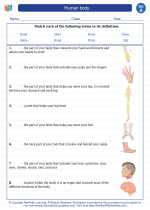Inflammation
Inflammation is the body's natural response to injury or infection. It is a complex biological process that helps the body fight off harmful stimuli and initiate the healing process. There are two types of inflammation: acute and chronic. Acute inflammation occurs rapidly and is typically resolved within a few days, while chronic inflammation can last for weeks, months, or even years.
Causes of Inflammation
Inflammation can be caused by various factors, including infections, injuries, and autoimmune disorders. When the body detects a harmful stimulus, such as a pathogen or damaged tissue, it triggers the inflammatory response to protect and repair the affected area.
Symptoms of Inflammation
The classic symptoms of inflammation are redness, swelling, heat, pain, and loss of function in the affected area. These symptoms are the result of increased blood flow to the area, leakage of fluid from blood vessels, and the recruitment of immune cells to the site of injury or infection.
Study Guide
- What is inflammation?
- What are the two types of inflammation?
- What are the causes of inflammation?
- What are the symptoms of inflammation?
[Inflammation] Related Worksheets and Study Guides:
.◂Science Worksheets and Study Guides First Grade. Human body

 Activity Lesson
Activity Lesson
 Worksheet/Answer key
Worksheet/Answer key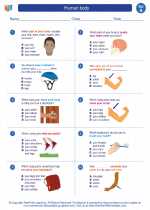
 Worksheet/Answer key
Worksheet/Answer key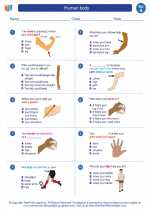
 Worksheet/Answer key
Worksheet/Answer key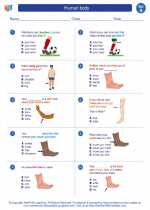
 Worksheet/Answer key
Worksheet/Answer key
 Worksheet/Answer key
Worksheet/Answer key
 Worksheet/Answer key
Worksheet/Answer key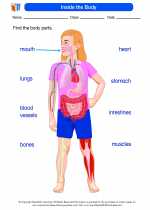
 Vocabulary/Answer key
Vocabulary/Answer key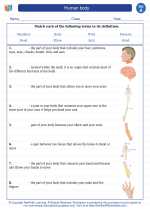
 Vocabulary/Answer key
Vocabulary/Answer key